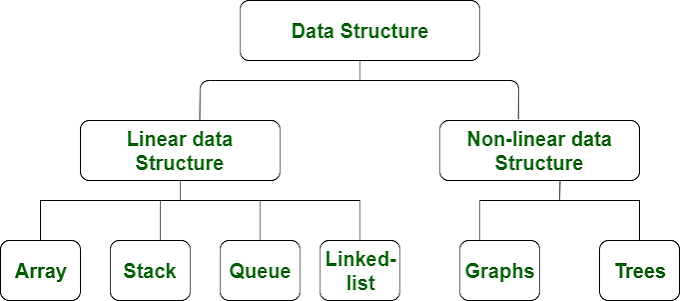How to create structure object (structure variable)?
A data type is useless without variables. A data type defines various properties about data stored in memory. To use any type we must declare its variable. Hence, let us learn how to create our custom structure type objects also known as structure variable.
In C programming, there are two ways to declare a structure variable:
Declaration along with the structure definition
Out of two ways to declare structure variable. You can declare a structure variable along with structure before terminating the structure definition.
Syntax:
struct structure_name
{
member1_declaration;
member2_declaration;
...
...
memberN_declaration;
}structure_variable;
So, if you want to declare student type object along with student structure definition you can use this approach.
struct student
{
char name[40]; // Student name
int age; // Student age
unsigned long mobile; // Student mobile number
}student1;
Declaration after structure definition
The other way to declare, gives you luxury to declare structure variable anywhere in program based on the structure scope. If structure is defined in global scope, we can declare its variable in main() function, any other functions and in the global section too.
Syntax:
struct structure_name structure_variable;
For above example, if we want to declare its variable with name student1, it will be declared as given below:
struct student
{
char name[40]; // Student name
int age; // Student age
unsigned long mobile; // Student mobile number
};
// Declare student variable
struct student student1;
How to access structure members (data)?
You created structure and its variable. But since structure is a complex data type, you cannot assign any value directly to it using assignment operator. You must assign data to individual structure members separately.
Dot/period operator (.) in C
Dot/period operator also known as member access operator. We use dot operator to access members of simple structure variable.
Syntax:
structure_variable.member_name;
Example:
// Assign age of student1
student1.age = 26;
Arrow operator (->) in C
Since structure is a user defined type and you can have pointers to any type. Hence, you may also create pointers to structure.
In C language it is illegal to access a structure member from a pointer to structure variable using dot operator. We use arrow operator -> to access structure member from pointer to structure.
Syntax:
pointer_to_structure->member_name;
Example:
// Student2 is a pointer to student type
student2->age = 29;
Syntax:
structure_variable.member_name;
Example:
// Assign age of student1
student1.age = 26;
Arrow operator (->) in C
Since structure is a user defined type and you can have pointers to any type. Hence, you may also create pointers to structure.
In C language it is illegal to access a structure member from a pointer to structure variable using dot operator. We use arrow operator -> to access structure member from pointer to structure.
Syntax:
pointer_to_structure->member_name;
Example:
// Student2 is a pointer to student type
student2->age = 29;
Example program to demonstrate declare, define and access structure members
In this example, we will declare a structure type, create structure object and access structure members. I will show how to use both dot and arrow operator to access structure members.
/**
* C program to demonstrate structures.
*/
#include <stdio.h>
#include <string.h>
#include <stdlib.h>
// Student type definition
struct student
{
char name[40]; // Student name
int age; // Student age
unsigned long long mobile; // Student mobile number
};
int main()
{
struct student student1; // Simple structure variable
struct student *student2; // Pointer to student
// Initialize pointer to student through dynamic memory allocation
student2 = (struct student*) malloc(sizeof(struct student));
// Input data in structure members using dot operator
printf("Enter student name: ");
fgets(student1.name, 40, stdin);
printf("Enter student age: ");
scanf("%d", &student1.age);
printf("Enter student mobile: ");
scanf("%llu", &student1.mobile);
// Eat new line from input buffer
getchar();
printf("\nStudent using simple structure variable.\n");
printf("Student name: %s\n", student1.name);
printf("Student age: %d\n", student1.age);
printf("Student mobile: %llu\n\n", student1.mobile);
// Input data in pointer to structure type using arrow operator
printf("Enter student name: ");
fgets(student2->name, 40, stdin);
printf("Enter student age: ");
scanf("%d", &student2->age);
printf("Enter student mobile: ");
scanf("%llu", &student2->mobile);
printf("Student using pointer to structure variable.\n");
printf("Student name: %s\n", student2->name);
printf("Student age: %d\n", student2->age);
printf("Student mobile: %llu\n", student2->mobile);
// Clear memory that was alloacted dynamically
free(student2);
return 0;
}









